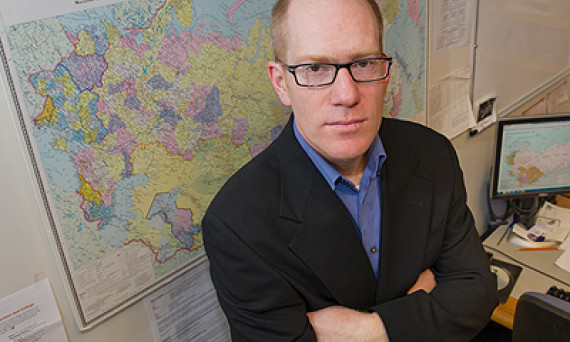The collapse of the Soviet Union left behind a group of generally weak states in Eurasia, including the main successor state, Russia. Russian President Vladimir Putin’s effort to rebuild the Russian state has led to contradictory assessments of the transformation of the Russian state. Western scholars disagree both about the success of Putin’s state-building project and the ability of leaders to affect stateness, given structural conditions. This chapter assesses this debate and uses it as a lens into more general themes in the statist literature about how to conceptualize, measure, and explain state development. One area of general agreement emerges in the Western scholarly literature about the contemporary Russian state—the persistence of bad governance.
 Brian Taylor is Professor of Political Science in the Maxwell School at Syracuse University. His research focuses on Russian politics and the Russian state, including the role of state coercive organizations, such as the military and the police, in domestic politics. He is currently writing a book on Putinism. Taylor is the author of State Building in Putin’s Russia: Policing and Coercion after Communism (Cambridge University Press, 2011) and Politics and the Russian Army: Civil-Military Relations, 1689-2000 (Cambridge University Press, 2003). His work has appeared in Comparative Politics, Comparative Political Studies, Problems of Post-Communism, Europe-Asia Studies, Post-Soviet Affairs, International Studies Review, Survival, Millennium and Journal of Cold War Studies. He received his B.A. from the University of Iowa, a M.Sc. from the London School of Economics and Political Science, and a Ph.D. from the Massachusetts Institute of Technology.
Brian Taylor is Professor of Political Science in the Maxwell School at Syracuse University. His research focuses on Russian politics and the Russian state, including the role of state coercive organizations, such as the military and the police, in domestic politics. He is currently writing a book on Putinism. Taylor is the author of State Building in Putin’s Russia: Policing and Coercion after Communism (Cambridge University Press, 2011) and Politics and the Russian Army: Civil-Military Relations, 1689-2000 (Cambridge University Press, 2003). His work has appeared in Comparative Politics, Comparative Political Studies, Problems of Post-Communism, Europe-Asia Studies, Post-Soviet Affairs, International Studies Review, Survival, Millennium and Journal of Cold War Studies. He received his B.A. from the University of Iowa, a M.Sc. from the London School of Economics and Political Science, and a Ph.D. from the Massachusetts Institute of Technology.
